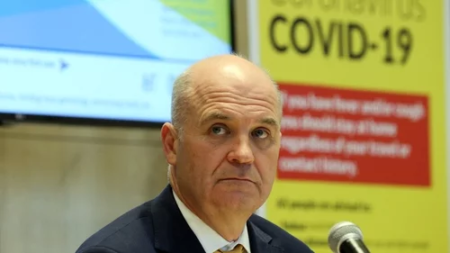4 June 2020
By Bryan Smyth
bryan@TheCork.ie
The Health Protection Surveillance Centre has today been informed that a total of 5 people with COVID-19 have died.
There have now been a total 1,664 COVID-19 related deaths in Ireland.
As of midnight Wednesday 3 June the HPSC has been notified of 38 confirmed cases of COVID-19. There is now a total of 25,142 confirmed cases of COVID-19 in Ireland.
The HSE is working to identify any contacts the patients may have had to provide them with information and advice to prevent further spread.
Today’s data from the HPSC, as of midnight, Tuesday 2 June (25,104 cases), reveals:
57% are female and 43% are male
the median age of confirmed cases is 48 years
3,311 cases (13%) have been hospitalised
Of those hospitalised, 410 cases have been admitted to ICU
8,025 cases are associated with healthcare workers
Dublin has the highest number of cases at 12,109 (48% of all cases) followed by Cork with 1,521 cases (6%) and then Kildare with 1,419 cases (6%)
Of those for whom transmission status is known: community transmission accounts for 39%, close contact accounts for 59%, travel abroad accounts for 2%
The National Public Health Emergency Team met today (Thursday 4 June) to continue its review of Ireland’s response and preparedness to COVID-19.
Dr. Tony Holohan, Chief Medical Officer, Department of Health, said; “Further progress has been made throughout May in suppressing the spread of COVID-19. A downward trend is evident in the number of hospitalisations, ICU admissions and reported deaths.
“Adherence to public health personal behaviours (hand washing, physical distancing, cough/sneeze etiquette) is essential in avoiding an upsurge of infection in the future.”
Dr Ronan Glynn, Deputy Chief Medical Officer, Department of Health said; “It is reassuring to witness over the past number of weeks that the vast majority of people continue to work collectively to adhere to the public health guidance, engaging in social distancing and hygiene behaviours as a new way of life. This individual and collective action remains crucial as neither the virus nor how it transmits has changed and the vast majority of people remain susceptible.”
Professor Philip Nolan, Chair of the NPHET Irish Epidemiological Modelling Advisory Group, said; “The reproductive number is now estimated to be between 0.4 and 0.7. The easing of restrictions in Phase One has not negatively impacted the r-number, in no small part thanks to the collective behaviours of our population in preventing resurgence of the disease.”
Liam Woods, HSE National Director of Acute Hospitals, said: “Thanks to the collective efforts of everyone in Ireland, Ireland’s healthcare system has withstood the challenge that this virus posed at the outset of this crisis. We must keep up the good work to ensure we remain vigilant against a second surge of COVID-19.”

